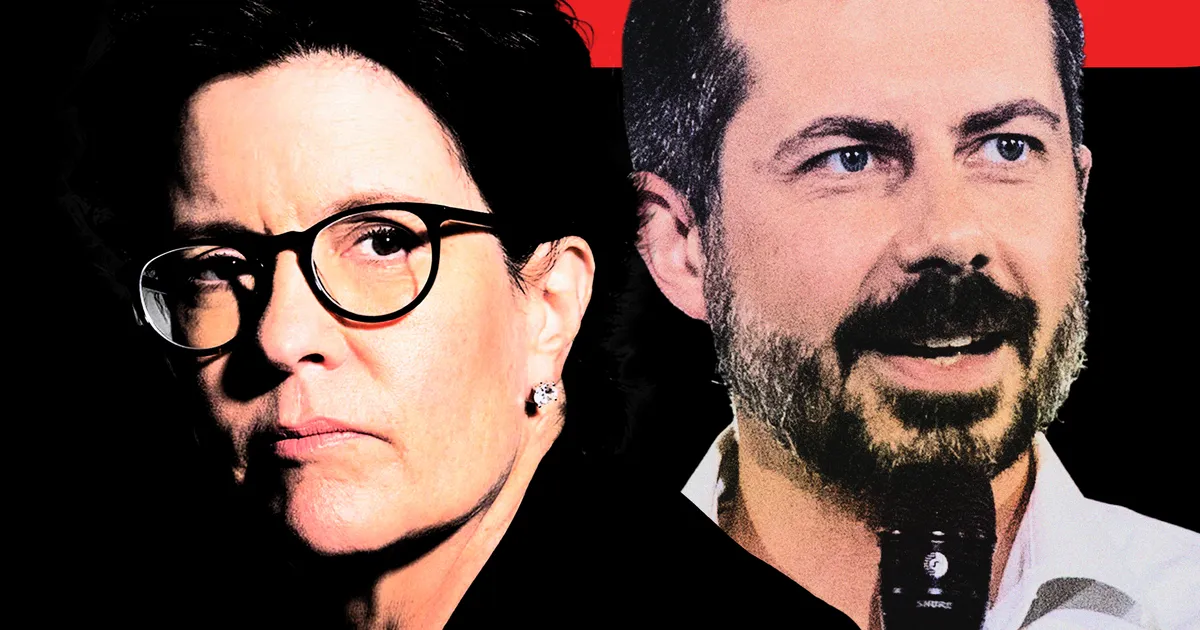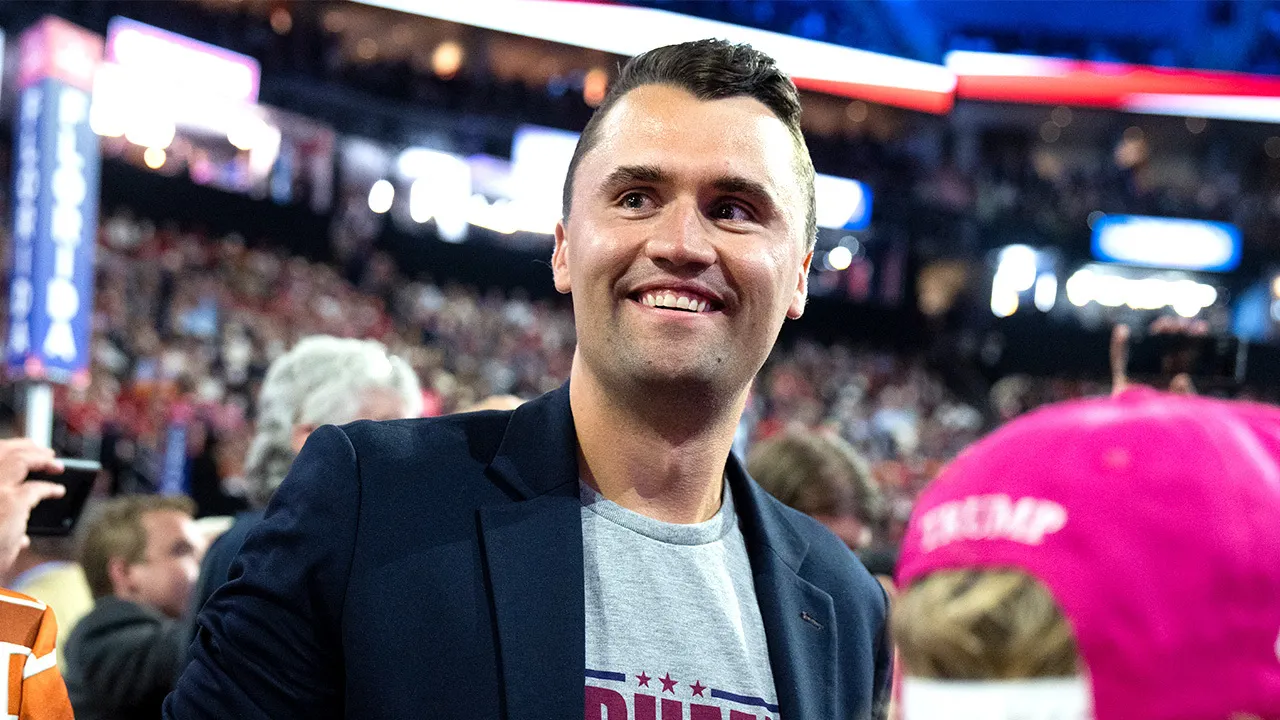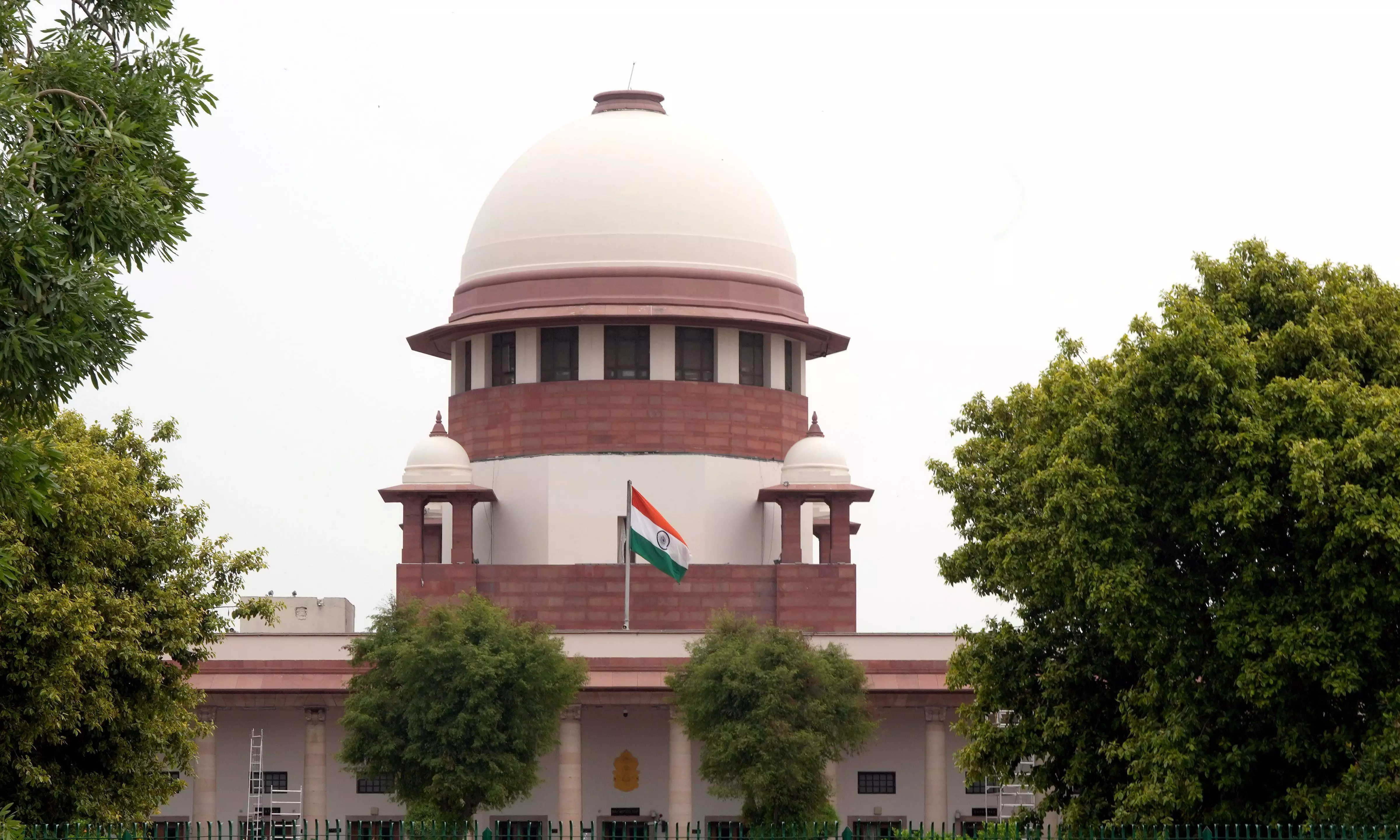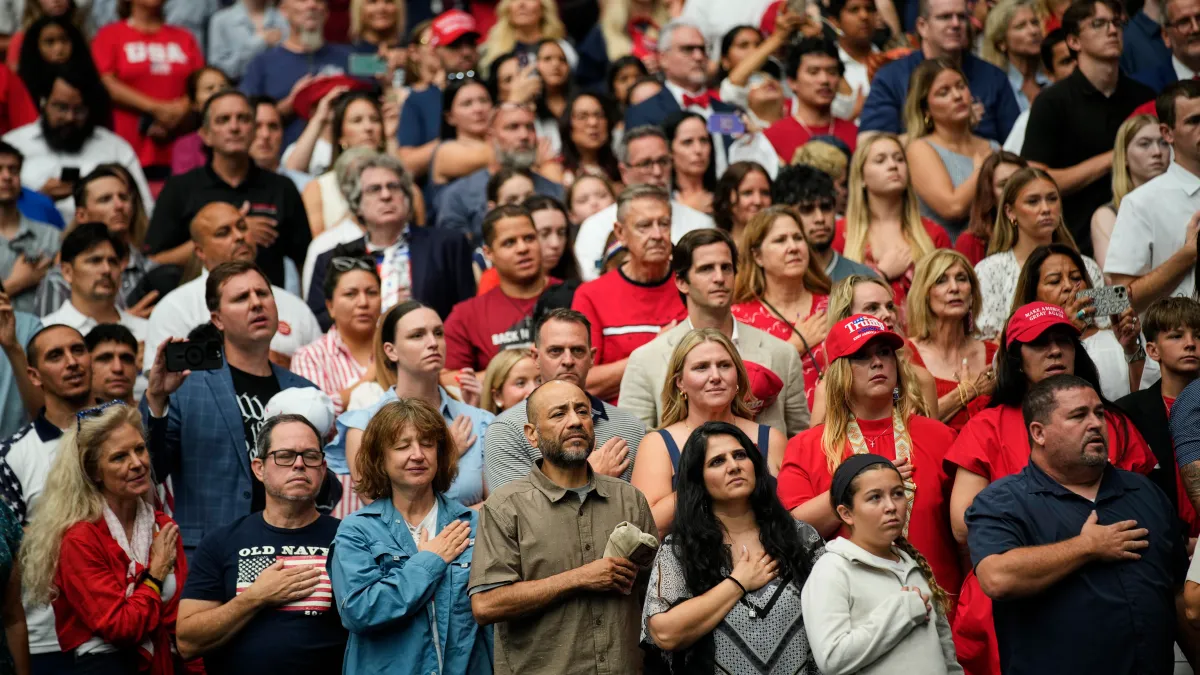
Pete Buttigieg, the former US Secretary of Transportation and former mayor of South Bend, Indiana, is on the short list of Democrats expected to make a White House run in 2028. But if he chooses to go for it again, he’ll face a much more fractured Democratic electorate than he did during his primary five years ago. The party is divided on many fronts, from the war in Gaza to its strategy to fight back against Trump to an agreed-upon version of why the party lost in 2024.
In the latest episode of On With Kara Swisher, recorded live at the University of Michigan, Buttigieg addresses these issues and more, including the fallout from Charlie Kirk’s assassination and the prospect of a government shutdown. Below, an excerpt from that conversation.
Kara Swisher: Let’s pivot to the state of the Democratic Party, specifically its credibility deficit. I would call it fecklessness, others would use other terms. On Meet The Press, you said that President Joe Biden quote, “Should not have run.” It’s been almost a year since the election. You waited until Vice President Harris said the same thing in a book excerpt — said it was reckless. I’m not going to say, “No shit, Sherlock,” to you, but I’m thinking that in my head.
Pete Buttigieg: Well, first of all, I didn’t. I said something along these lines before that book came out. But also, look, everybody got to that conclusion, including by the way, President Biden, who took himself out of the race-
Swisher: Sure.
Buttigieg: …belatedly, we can say.
Swisher: Is this a position you’ve recently come to, or did you feel it at the time? I’m going to be interviewing Vice President Harris in two weeks. You were in that administration, and I know that Scott and I, on Pivot, were talking about it a full year before that and got attacked really relentlessly by Democrats, saying we needed to get on board. And I was like, “I’m not getting on that train.” Talk about it from the inside. What took so long for people like you and Vice President Harris and others to unequivocally say that he shouldn’t have run?
Buttigieg: Well, people like me were not consulted on the decision about whether he should run.
Swisher: Sure, but you have eyes.
Buttigieg: And what my eyes told me was that the sitting President of the United States and the leader of my party had made a decision that he was going to run, and that our country faced a choice between President Joe Biden or President Donald Trump. And it was not hard for me to know not just who I was going to vote for, but who I was going to do everything in my power to make sure won. And while there’s lots of things that hindsight tells you about how and when he made his decision to change course and the 100 or however many days it was of the Harris campaign, I continued just as enthusiastically backing the Harris campaign and then the Harris-Walz campaign as I did the Biden-Harris campaign. And anybody who was part of making sure that they, and not Donald Trump won, I think should have their head held high because it was the right thing to do.
Swisher: Was there a moment in that time period where you thought, “Oh, he should quit sooner?”
Buttigieg: I mean, obviously all of us who saw the debate immediately began asking ourselves tough questions, and I knew that he was asking himself tough questions and eventually stepped aside. I think that was a turning point for-
Swisher: For you all. I mean, even before the debate polling showed a majority of voters were worried about his age.
Buttigieg: Yeah.
Swisher: I’d love to understand from the inside what happened. I get-
Buttigieg: I don’t know which inside you mean because when they’re inside the room where he’s deciding whether to run again, they’re not calling-
Swisher: As a cabinet member.
Buttigieg: The Secretary of Transportation is not invited into that room.
Swisher: But you’re nearer than I was.
Buttigieg: Potentially, yeah.
Swisher: Definitely.
Buttigieg: But to the extent that I was involved in the campaign, it was: How do we make sure that this campaign and not the Trump campaign is the one that wins?
Swisher: How does the party then regain credibility with voters who are skeptical by just blaming the Bidens? I get why the Bidens did it. I understand it.
Buttigieg: Well, I think the answer is to tell the truth.
Swisher: Of what happened.
Buttigieg: Yeah, and why we believe what we believe, right? So again, the truth, at least the truth that I lived, was that we had a choice between two candidates, two presidents. It was not close who should be president between those two presidents. And then we had a different choice when he stepped aside, and it still was not close to me, of who should win and who should lose.
Swisher: I get that. But I think I’m trying to ask a very specific question. During that time period when there were worries, why didn’t someone quit? Why didn’t someone go to him and say, “Listen, love you, but you got to get out?” Is that impossible to do in the current the way things are?
Buttigieg: It’s not like you can just book a meeting and go in and tell them not to be president anymore. Or maybe there’s some people who could, like people in his family. I don’t know. I don’t know how that worked, but I know that enough people did that eventually he made that choice.
Swisher: Well, it was Nancy Pelosi, which is on brand for her. But I’m just interested why that didn’t happen sooner. So then what happened is it was very quickly Vice President Harris, many people think far too quickly.
Every episode we get a question from an outside expert. Here’s yours.
(Voice of Joe Manchin): Hello, this is Joe Manchin, and I would like to ask my friend Pete Buttigieg a question. Do you believe, Pete, that the Democrats should have had a mini primary of least 30 days when Joe Biden decided not to run? And do you think it would’ve helped or it’d been more harmful?
Swisher: It’s a good question. That’s former Senator Joe Manchin. I just interviewed him this week and he kindly provided that.
Buttigieg: I think it probably would’ve helped. I didn’t think that then.
Swisher: Why?
Buttigieg: I think I felt that we were so under the gun that every day mattered so much, and that she was preparing to not just come out running, but to take the organization that had been built over years and immediately carry it forward. I think with the benefit of hindsight, if we’d invested those 30 days, and then had she been the nominee, she’d have done so after consolidating the party in a competition. And had she been unable to do that, then almost by definition there would’ve been a stronger nominee. But it’s one of a million things that’s a lot easier to say now, looking back with the benefit of hindsight, than it was in the moment.
Swisher: Is there too much cautiousness in the Democratic Party? Obviously Trump doesn’t have any caution whatsoever. Which is an asset.
Buttigieg: I don’t think the answer is to emulate Trump. But to take one example, most of my Democratic colleagues still hesitate to go into venues and spaces that I think we need to be in, where people might not be exactly on our side or even on the level. Although it’s happening more and more. I remember not just feeling like I was one of the only ones who would go on Fox News, but having to defend going on Fox News. People said I was contributing to their business model. Some people said it was actively harmful to go onto Fox News. Now I think it’s relatively uncontroversial in the party that we should be there. Well, it’s funny, they’re not booking me as often as they used to.
Swisher: They’re obsessed with Gavin, just so you know.
Buttigieg: Oh, okay. Well, as long as somebody’s doing it. But also into the online — look, most people younger than me aren’t getting the majority of their news from any TV. They’re not into Fox either.
Swisher: No, that’s quite an age demographic.
Buttigieg: And so obviously there’s an online expansion of that same principle. But the principle’s there. Take the podcasts. So I’ve started doing some of these podcasts that are like three hours long. And even if you intended to be on talking points for three hours, it is just not possible, which is risky. It’s a risk, and it’s the kind of risk that a lot of people in the consultocracy in the party tell you you shouldn’t take because you will definitely put a foot wrong in three hours. You just will.
Swisher: Do you think you’re risk averse?
Buttigieg: I think I’m less risk averse about that than others who wouldn’t do it.
Swisher: Okay, let’s talk about a topic then. You have a well-earned reputation as an effective communicator. You got blowback for equivocating when you were asked about Gaza in an interview on Pod Save America. You now say you would recognize a Palestinian state as part of — if I’m wrong, you can correct me — as part of a two-state solution, and that the U.S. should not pass another ten-year agreement with Israel on foreign military aid. Did it take getting dragged online to clearly state your position on this issue? And please more clearly state it for us.
Buttigieg: On the specific issues, there were three things that I spoke to. One was a resolution about offensive weapons going to Israel. And I believe, like a lot of Senate Democrats who voted for it, that that was an important step, something that I would support even though I’m not in the Senate because it’s one of the few things I could think of that would get the attention of Netanyahu in the conduct of the war. So that’s number one. Number two, on the recognition of a Palestinian state. I think that if you believe in a two-state solution, then by definition you believe in the recognition of a Palestinian state. But that does not mean that you just turn around tomorrow morning and do it while Hamas is still in charge, and with no security guarantees for Israelis who are living surrounded by countries and organizations, including Hamas, that are dedicated to wiping them out.
So yes, it has to happen, but it has to happen as part of a negotiated, credible and enforceable agreement. And then on the third policy issue, the MOU. In the past, we’ve had our security relationship defined by, I think it’s happened three times now by a ten-year non-binding, but important, MOU between the U.S. and Israel. I’m not sure that’s the right answer going forward. I’m not saying I’m sure structurally what all the technical details of it should be. What I am saying is by 2028 or 2029, we don’t know what we’re going to be looking at in terms of how the security relationship is structured. I can tell you for sure right now that there should be a security relationship, that that should include the U.S maintaining its historic commitment to making sure that Iran or anybody else is not able to achieve their aims of destroying Israel. But that is a defensive goal, which is different from some of the things that the Israeli government has expected the American taxpayer or requested the American taxpayer to continue to support.
Swisher: One of my students here named Zach wants to know — he sent me a note — if you still consider Israel a strong ally of the United States. And if so, what line would Israel have to cross to lose your support?
Buttigieg: Israel is not behaving obviously as a good friend, but that’s past the point. The problem is that the Netanyahu government is perpetrating atrocities in Gaza.
Swisher: Atrocity is the word you want to use?
Buttigieg: Yeah.
Swisher: Would you use the word genocide?
Buttigieg: I have a lot of respect for not just the moral weight of that word, but the legal definition it represents. And so out of deference to that, I’m not going to jump into that semantic fight, but the important thing is that the killing has to stop, the starvation has to stop, the war has to stop. And of course, the hostages need to come home, and Hamas needs to not be a threat to the people of Gaza. Let me tell you why I equivocated.
Swisher: Okay. Well, you’re good at it, but go ahead.
Buttigieg: Thanks, I guess.
Swisher: Very good argument.
Buttigieg: Anytime I talk about this issue, I’m mindful of the pain that people experience. It’s not quite accurate to say they’re on opposite sides of it because so many people I know are really, really concerned about protecting Israel’s ability to exist and separately, I want to say that, separately — really concerned about the explosion of anti-Semitism on American campuses. They’ll experience that when you say things, even things that I think they too would agree, are inarguably true about what’s happening in Gaza, if you say it in a certain way or you say certain things in a certain order, their worst fears about the abandonment of Israel or of American Jews facing anti-Semitism are confirmed.
So one of the reasons why, as somebody who does a lot of talking and a lot of politics, I have rarely felt closer to my limits in terms of the tools that are available to build consensus and talk forthrightly about these issues than on this is because I’m conscious of the pain that comes with talking about this, even when we are saying things that are clearly true. Because it turns out if you say certain things that are true and don’t say all these other things that are also true, some people are inclined, for very understandable reasons, to assume the worst.
Swisher: Certainly. But when Democrats talk about building back credibility with voters, it’s actually framed around bringing back working class voters, for example. But we’re in Michigan, a state Harris lost in part because of Arab and young voters who were furious about the Biden’s administration’s support of Israel. How do you win back credibility if you’re worried about that? A recent poll found 77 percent of Democrats think Israel’s committing genocide in Gaza and a UN inquiry concluded that it had. How do you bridge that gap? Because again, like I said, same thing with Biden. We have eyes. We can see. How do you do that as the Democratic Party?
Buttigieg: By naming all of the things that are all true and that collide with each other in messy ways, but are still definitely true. And by the way — and who knows, even just between when we’re sitting here and when people are listening to this podcast, what else will have happened on the ground? — but in the face of this ground invasion, you see a lot of Israelis standing up and saying, “This is certainly not helping the hostages, this is not helping our security as the Israeli people, and it is wrong.” And so I think part of what we have to do, and it’s been hard in U.S. politics for all kinds of reasons, is to speak about this as freely, as frankly as is possible in Israel. There are sometimes things that I have read on the pages of the Jerusalem Post or Haaretz, Israeli papers that in the past people weren’t willing to say in U.S. politics, and we have to because they’re true.
Swisher: If you were in a position of authority, what would you do? What would be one of the first things you would do?
Buttigieg: It would be to make clear that the U.S. is not going to subsidize just anything. We’re not going to let the Netanyahu government take American dollars and the credibility that comes with being an ally or partner of the United States and use it to, for example, use starvation as a tool of war. This is wrong. And it’s one of those things that is so wrong that all of the other things that might also be true just cannot possibly make it right. And that does mean taking a look at things, which is why that resolution, even though I think it was symbolic, was important. So I don’t have all of the answers to something as vexing and as just repeatedly brutal as the Middle East conflict. But I think that the next president needs to be more willing to do that than any previous president from either party.
Swisher: You do understand where young voters are. I’ve watched the shift happen in real time right now, and the Democratic Party has to respond to that, presumably?
Buttigieg: Yes.
Swisher: So I’m going to move on to something else. The federal government is set to run out of funding and shut down at the end of the month. In March, Chuck Schumer decided to avoid a showdown with the administration. He corralled enough Senate Democratic votes to help Republicans keep the government funded. What about this time? Should Democrats help Republicans keep the government open or should it shut it down again? And what are the strategic benefits to both approaches?
Buttigieg: Well, first of all, I don’t want to buy into the premise that it’s the Democrats who would be shutting down the government.
Swisher: I get it. But they might be.
Buttigieg: The Republicans are in charge. They have the House, they have the Senate, they have the presidency, and if there’s anything we know about this presidency, it’s this attempt to assert and then expand its control over everything. So if there is a shutdown, it will be because of Donald Trump and the Republicans. I’m just going to insist on that.
If they want to ask for Democrats to vote for a Republican budget, there are certain things that Democrats are not going to be able to do, even if Republicans are saying, “If you don’t do this for us, it’s all going to shut down.” And I think right now there are different answers from different voices in the party, in the House. Voices like Pat Ryan and Jake Auchincloss have been part of a group that has laid out a pretty specific set of things. The biggest — well, I wouldn’t say the biggest, but certainly a big one, is that I don’t see how you can tell Democrats the government will shut down unless you vote to strip away access to healthcare from Americans.
So I think that’s likely to be a clear line, but there are many others. And look, if we’re going to go into that, we have to know what it is we hope to do to have a less bad outcome than if Republicans just get to run roughshod.
Swisher: Is there a strategic benefit to just saying, go ahead, shut it down?
Buttigieg: Not one to be taken lightly.
Swisher: Why not, if they’re holding the bag?
Buttigieg: The reason you can’t take it lightly is because of how many people will get hurt. And if their goal is already to wreck the federal government, and they’re well on their way, there’s just going to be a lot of damage left in the wake of this. But I don’t believe Democrats should roll over on this. I think it’s different than it was in the spring. And I think that frankly, the unpopularity of the Republican proposals that they’ve jammed through is becoming clearer and clearer too. And again, just philosophically, I think the Republicans are in charge, and if you’re asking Democrats to actively cooperate with you, you can’t demand that we support-
Swisher: You don’t see a benefit. I hate to use a Mel Robbins term, but “let them.” You know who Mel Robbins is? She’s real popular. Anyway, look it up.
Buttigieg: There’s been this theory from day one that what Democrats need to do is just let Republicans screw everything up, burn everything down, and then they’ll screw it up, and then they’ll get blamed and then we’ll come back into power.
Swisher: Yes, that’s the theory.
Buttigieg: I think that theory is wrong. I don’t disagree that they’ll screw it up. I am not so sure that they’ll get blamed. One thing they’re really good at, much better than actually running the government, is apportioning blame. And that’s even more so when they’re dominating some of the ways people get their information. So again, I think there really needs to be a really forceful response this time. I just don’t want to assume that it’s going to be easy or that it should be done lightly.
Swisher: Is Chuck Schumer fit to do that?
Buttigieg: I mean, one thing I’ve experienced is that he is exceptionally aware of what the dynamics are to actually get anything done or to stop anything from actually getting done in the Senate. And I would also say the virtues of a caucus leader in the Senate or the House and the things you expect from them might be different than what you expect from a presidential candidate or a governor or a different person playing a different role in the party. I do hope though that he recognizes how much has changed, how much the toolkit has changed, how much the relationship with the public has changed, since some of the defining fights that might still be shaping his muscle memory.
Swisher: Yes. I would suggest he not do social media anymore actually. Take a look, please. You’ll understand. You’ve seen it.
Buttigieg: I know what you mean.
Swisher: It’s a problem. It really is. You need to speak to him. I’m sending you, not me. Stop it, Chuck. You’re hurting my eyes.
This interview has been edited for length and clarity.
On With Kara Swisher is produced by Nayeema Raza, Blakeney Schick, Cristian Castro Rossel, and Megan Burney, with mixing by Fernando Arruda, engineering by Christopher Shurtleff, and theme music by Trackademics. New episodes will drop every Monday and Thursday. Follow the show on Apple Podcasts, Spotify, or wherever you get your podcasts.



